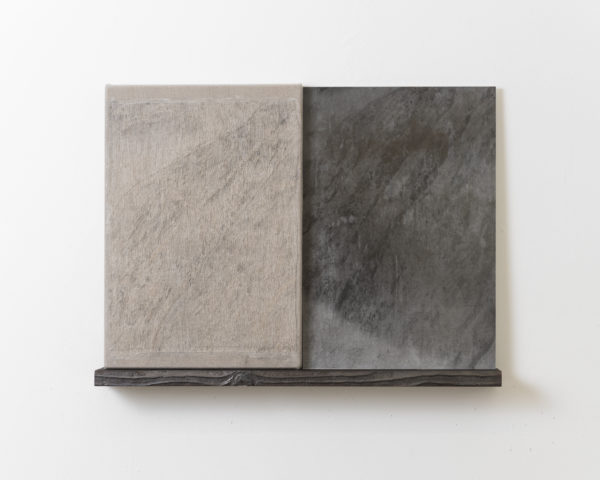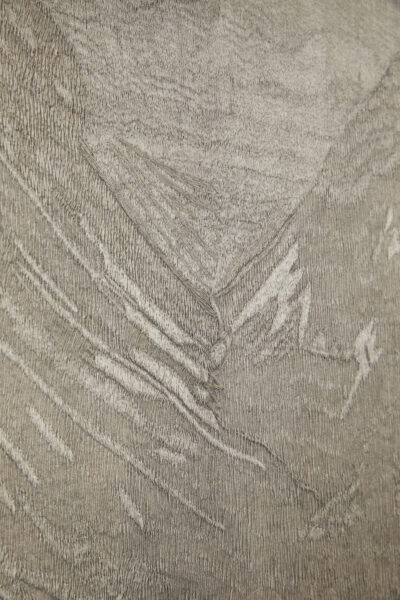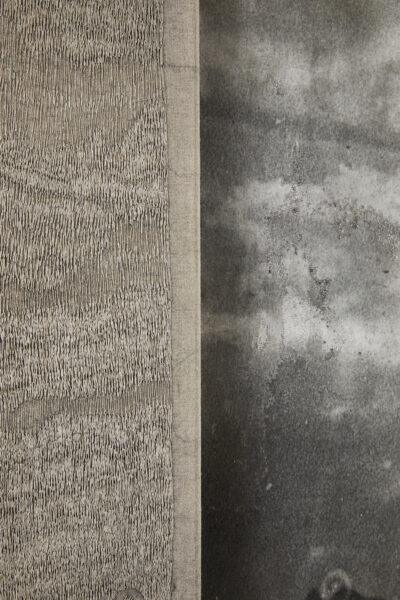DMG/NAS Award 2022
Armando Chant

Dominik Mersch Gallery is excited to present Armando Chant’s solo exhibition ‘Vallée’ as the winner of the 2022 DMG/NAS Award. The artist’s inter-disciplinary practice is founded in the act of drawing, mark-making using analogue and digital media, and the inter-relationships between gesture, surface and space. His media and techniques traverse the technological and the hand-crafted, including vintage stereoscope glass negatives depicting landscape scenes, digital photographic printing, mineral pigments, wax and varnish with graphite and cross-cultural exchange with master embroidery artisans in India.
ARTIST STATEMENT ON ‘VALLÉE’
My work seeks to capture the ethereal resonance of landscape by exploring the intricate relationship between light and darkness, image and surface through an atmospheric lens. The valley geographically is a meeting point between two mountain forms with a space between; it invites an encounter with a place between land and sky, atmosphere and solidity, calm and turmoil, peace and imminent danger with the potential to embody shifting moods and emotions. It is this delicate balance and the tensions that it creates that form the basis of the work.
For this work, I chose antique stereoscopic negatives depicting a valley in France, the Valle Veneon D’Isere. The images used are of a place unknown to me; I have no personal connection to them, and they are documentation of a time and method of image-making that is long gone, yet they form a ”familiar” vista. Art critic John Berger states: “When we see a landscape, we situate ourselves in it.” I thus question how we might engage with place and the world by creating atmospheric and indeterminate (”negative”) pictorial spaces that convey the tension between personal and collective memories and their ”resonance.”
This ”atmospheric” in reference to landscape lets us recognise spaces and elements that sit in-between images and object that explore the interstices of art practice. The work sits not only as individual works (image or object) but also in series, where a visual and compositional format is repeated, so that creative and perceptual tensions arise through processes of erasure and negation and generate or reveal surfaces and sites of interaction.
In this way, the in-between connects diverse methods of visual image or surface generation and the relationship between one entity and another; that is, the elements that compose the work itself (image, material, surface, technique or mode of presentation), artist and work, and work and viewer. Conceptually and aesthetically, such paired elements are either harmonious or oppositional, and sometimes both, so that their tensions and resonances coalesce to become singular, an ”in-between” site, where the line between imagination and reality is blurred, not defined or fixed, but nebulous and ethereal. American art critic and philosopher Arthur C. Danto states: “My own sense is that a picture creates an illusionary space, within which various objects are represented. The viewer, as it were, looks through the surface of a picture as if through a window into a virtual space.”


◐ ◑ ◐ ◑
Subscribe to our Newsletter
Sign up to be the first for exclusive gallery news, international events, opening information and updates on our artists.